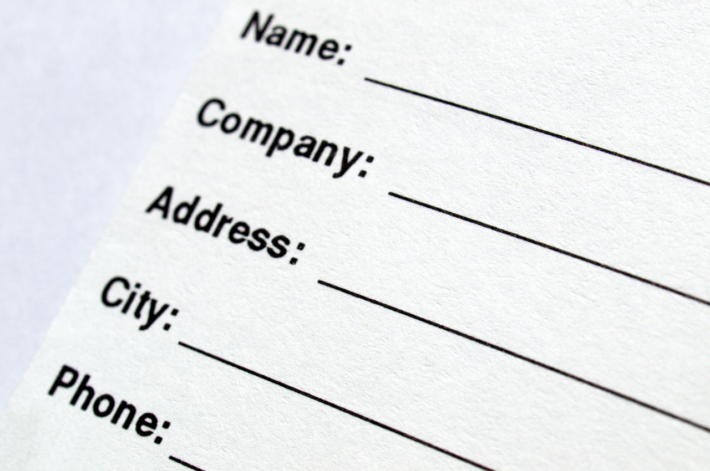The Legal Checklist for New Business Owners

Starting a new business is an exciting venture, filled with possibilities and dreams of success. But before you dive into the fun stuff—like branding, marketing, and sales—there’s one crucial area you need to focus on first: the legal side of things. Getting your legal ducks in a row from the start can save you a lot of headaches (and money) down the road.
Here’s your go-to legal checklist to ensure your business is built on a solid foundation.
1. Choose the Right Business Structure
Your business structure will affect everything from how you pay taxes to your personal liability. Here are the most common options:
- Sole Proprietorship: The simplest form, but you’re personally liable for all business debts.
- Limited Liability Company (LLC): Offers protection from personal liability and is relatively easy to manage.
- Corporation: More complex, but it can offer significant tax advantages and liability protection.
- Partnership: If you’re starting a business with someone else, this structure shares responsibility and profits between partners.
Tip: Take your time to research and, if possible, consult with a legal professional to choose the best structure for your business needs.
2. Register Your Business Name
Your business name is your brand, and it’s important to make sure it’s legally yours. Here’s how to protect it:
- Check Name Availability: Start with a quick online search to see if your desired name is taken. Then, check with your state’s business registry.
- Register Your Business Name: Depending on your structure, this could involve filing a “Doing Business As” (DBA) or incorporating under your business name.
- Trademark Your Name: If you want to ensure national protection, consider filing for a trademark with the U.S. Patent and Trademark Office (USPTO).
Tip: Don’t forget to check domain name availability too. Consistency in your online presence is key.
3. Get Your EIN (Employer Identification Number)
An EIN is like a Social Security number for your business. You’ll need it to:
- Open a business bank account
- Hire employees
- File taxes
You can apply for an EIN through the IRS website, and it’s free.
Tip: Even if you’re not planning to hire employees right away, it’s smart to get your EIN early on.
4. Apply for Necessary Business Licenses and Permits
Depending on your industry and location, you may need various licenses and permits to operate legally. Here’s what to consider:
- Local Licenses: Check with your city or county government for any required local licenses.
- State Licenses: Some states require specific licenses for certain industries like real estate, healthcare, or food service.
- Federal Licenses: If you’re in a regulated industry (like aviation or broadcasting), you might need federal licenses.
Tip: Make a list of all the licenses you need, and set reminders for renewal dates.
5. Draft Foundational Legal Documents
Starting a business without the right legal documentation is like building a house without a blueprint. Here are the key documents you should have in place:
- Operating Agreement or Bylaws: Essential for LLCs and corporations, these documents outline how your business will be run.
- Partnership Agreement: If you’re in a partnership, this document is crucial for defining each partner’s role, responsibilities, and what happens if someone wants out.
- Contracts: From client agreements to vendor contracts, having clear, legally sound contracts will protect your business.
Tip: Templates can be helpful, but it’s wise to have a lawyer review any critical documents.
6. Open a Business Bank Account
Keep your personal and business finances separate by opening a business bank account. This will:
- Simplify tax filing
- Make your business appear more professional
- Protect your personal assets
Tip: Look for banks that offer small business accounts with low fees and good customer service.
7. Set Up an Accounting System
Good financial records are the backbone of a successful business. Whether you hire an accountant or use accounting software, make sure you:
- Track income and expenses
- Keep receipts and invoices organized
- Prepare for tax time
Tip: Cloud-based accounting software can save you time and reduce the risk of losing important documents.
8. Get the Right Business Insurance
Insurance is your safety net. It protects you from risks that could otherwise sink your business. Consider:
- General Liability Insurance: Covers accidents, injuries, and claims of negligence.
- Professional Liability Insurance: Important for service-based businesses; it covers errors and omissions.
- Property Insurance: Protects your business assets, including equipment and inventory.
Tip: Talk to an insurance agent who specializes in small businesses to find the best coverage for your needs.
9. Understand Your Tax Obligations
Taxes can be complicated, but understanding your obligations is key to avoiding penalties. Here’s what to know:
- Federal Taxes: You’ll likely need to pay income tax, self-employment tax, and payroll tax if you have employees.
- State Taxes: Depending on your state, you might owe state income tax, sales tax, and more.
- Local Taxes: Some cities and counties have additional business taxes.
Tip: Set aside money regularly for taxes to avoid a last-minute scramble.
10. Establish a Record-Keeping System
Good record-keeping isn’t just about staying organized—it’s the law. You should:
- Keep copies of all legal documents, licenses, and permits
- Maintain financial records for at least seven years
- Document key business decisions and meetings
Tip: Consider using digital storage solutions for easy access and backup.
Wrapping It Up
Taking the time to address these legal essentials can set your business up for success and protect you from costly mistakes down the road. While it might seem overwhelming, remember that you don’t have to do it all at once. Tackle each step one by one, and consider seeking professional advice if you’re unsure about anything.
Starting a business is a big leap, but with the right legal foundation, you’ll be well on your way to building something amazing.



